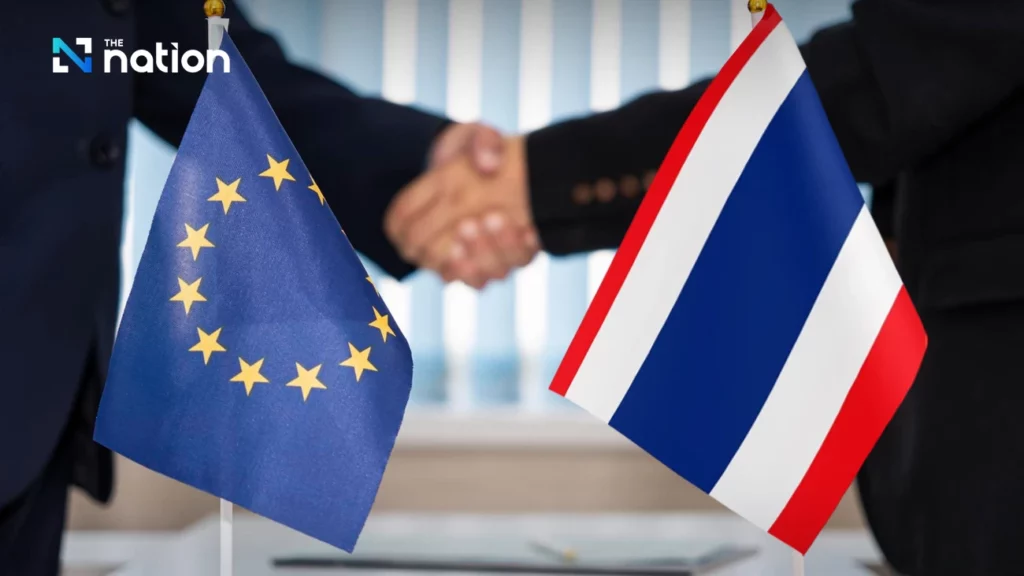
As global trade grapples with growing uncertainty, collaboration and free trade agreements — such as the European Union (EU)-Thailand Free Trade Agreement (FTA) — are more vital than ever.
Marking the 30th anniversary of Thailand and Sweden’s joint membership in the World Trade Organisation (WTO), Anders Ahnlid, director-general of the Swedish National Board of Trade, emphasised Sweden’s unwavering support for a rules-based trading system in a recent opinion piece.
According to the Bangkok Post, the multilateral trading framework — rooted in the General Agreement on Tariffs and Trade (GATT) and continued under the WTO — has underpinned international trade for nearly 80 years. Both Thailand and Sweden share a longstanding commitment to this rules-based system.
However, Ahnlid noted with concern that the United States has moved away from using WTO rules as a reference point in its trade policy, raising the risk that more countries could follow suit and erode the global trading order.
“Hopefully, this critical situation will serve to clarify minds and priorities when we enter the final phase of EU-Thailand FTA negotiations. We should never let a good crisis go to waste,” he remarked.
As a case in point, he cited the EU-Vietnam Free Trade Agreement (EVFTA), which has helped Vietnam become ASEAN’s leading exporter to the EU. The agreement has fuelled economic growth, boosted employment, and improved access to high-quality European products for consumers.
“Vietnam’s export value to the EU has surged by nearly 50%, while imports from the EU have also grown by over 40%.” he explained.
Ahnlid stressed the importance of like-minded partners — such as the EU, Thailand, and others — working together to strengthen rule-based trade. The most effective way to achieve this, he said, is by building new frameworks of cooperation.
“The EU-Thailand FTA would be an important pillar in that work. EU trade integration with the Comprehensive and Progressive Agreement for Trans-Pacific Partnership (CPTPP) — a trade agreement that Thailand has also shown an interest in joining but has not yet submitted a formal application to join — would be another.” he said.
Ultimately, Ahnlid envisions a broad coalition of rule-abiding trade partners emerging as a new centre of gravity in global trade. With its strategic location and long-standing support for open trade, Thailand is well-positioned to benefit — as is Sweden.
Source: The Nation
